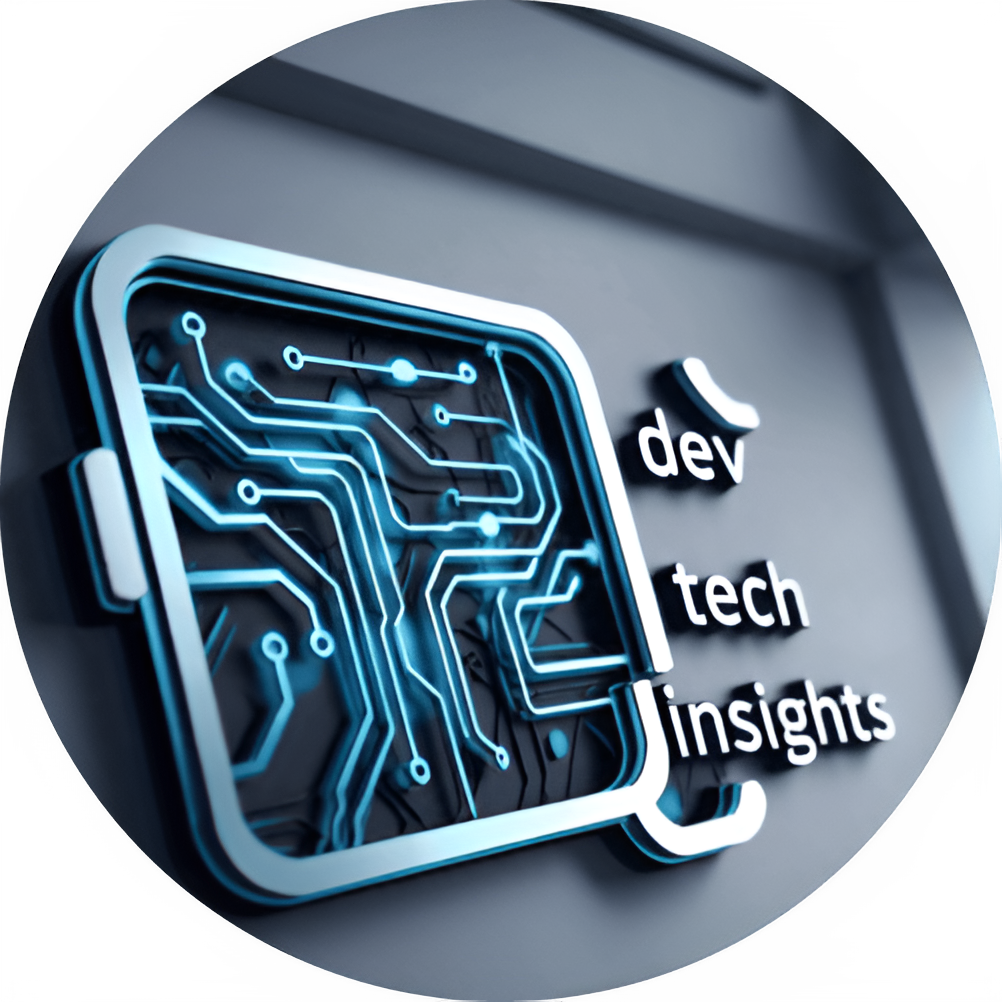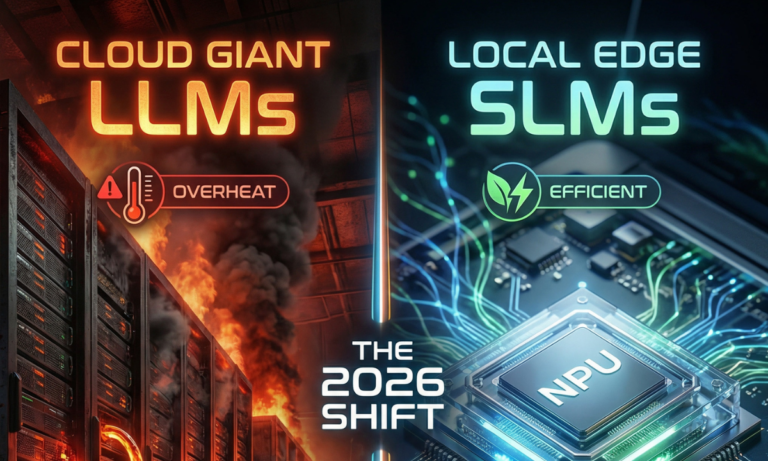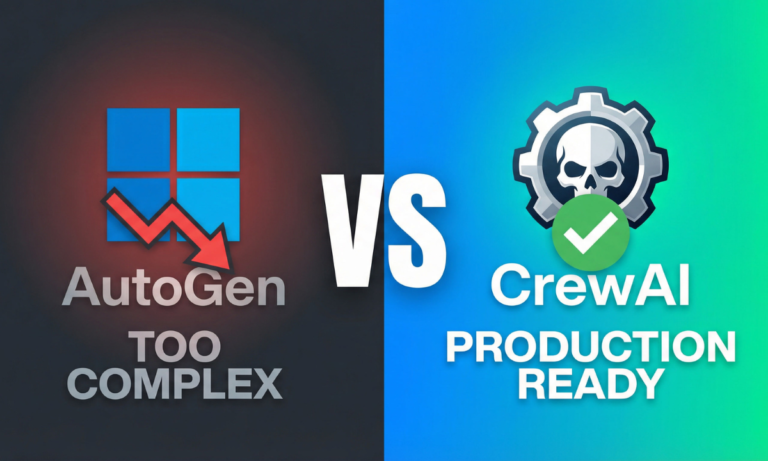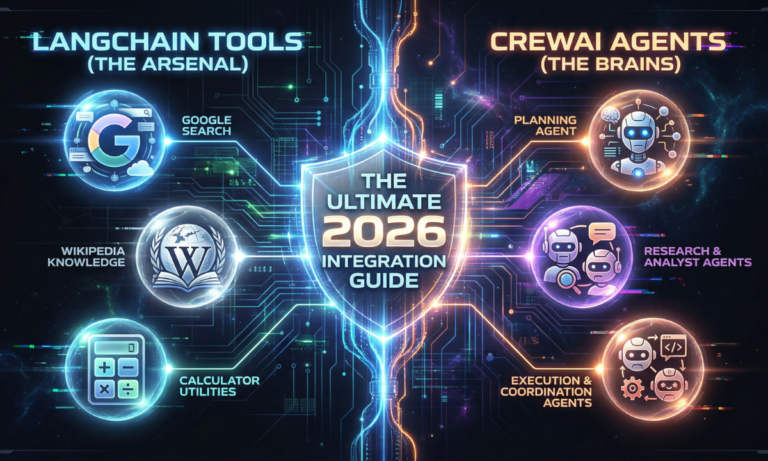
🤖 AutoDev Agents: Will AI Agents Replace Junior Developers by 2026?
Written by Abdul Rehman Khan
Developer, Blogger & SEO Strategist | Founder of DevTechInsights.com
“In 2025, AI agents aren’t just writing code — they’re reading docs, fixing bugs, shipping builds… all without human input. So where does that leave junior devs?”
My Hosting ChoiceNeed Fast Hosting? I Use Hostinger Business
This site runs on the Business Hosting Plan. It handles high traffic, includes NVMe storage, and makes my pages load instantly.
Get Up to 75% Off Hostinger →⚡ 30-Day Money-Back Guarantee
Table of Contents
🚀 Introduction: Autonomous Devs Are Here
We’ve spent years watching AI evolve from autocomplete tools to full-on copilots. But what’s happening now in 2025 is a leap beyond anything most developers expected:
AI agents are building entire apps with zero human instruction.
This shift is no longer theoretical. Autonomous agents like AutoGPT, OpenDevin, Devika, and SWE-agent are solving real-world dev problems by themselves — opening tickets, writing tests, running apps, and fixing errors autonomously.
At DevTechInsights.com, we’ve tested these tools ourselves. And one question keeps coming up:
Will AI agents replace junior developers by 2026?
Let’s break it down using experience, practical tests, and the current state of AI coding tools.
✍️ Author Expertise & Experience
This post isn’t AI-generated fluff or a recycled tech trend.
I’m Abdul Rehman Khan, a full-stack developer and SEO-focused blogger with 2 years of hands-on experience building tools, publishing daily content, and actively using AI copilots and agents in real client and side projects.
In the last 6 months, I’ve experienced:
- AutoGPT for multi-step task execution
- Devika for web UI builds
- SWE-agent for bugfix automation
- GitHub Copilot for daily pair programming
- Tabnine, Cursor, Codeium as productivity assistants
This article shares real-world insights — not theory — with tools we actually used on DevTechInsights.com and internal dev workflows.
🧠 What Is an AI Dev Agent, Exactly?
Unlike GitHub Copilot or ChatGPT, AutoDev agents are AI systems designed to work autonomously. They don’t wait for you to prompt them — they:
✅ Plan the task
✅ Open a repo
✅ Write and edit code
✅ Test the output
✅ Fix bugs or restart the flow
They act more like junior engineers than assistants.
Popular Dev Agents in 2025:
| Agent | Capabilities | Open Source? |
|---|---|---|
| AutoGPT | Multi-step autonomous tasks | ✅ |
| Devika | React app builder, task planner | ✅ |
| SWE-agent | Bug triage, code patching, pull requests | ✅ |
| OpenDevin | Local dev environment + terminal support | ✅ |
📊 A Real Experiment
Each Agent was assigned a simple task:
Build a weather app using a free API with a basic UI.
🧪 Test Results:
| Agent | Completion | Issues | Time Taken |
|---|---|---|---|
| Devika | ✅ Built working UI & API call | Minor layout issues | 9 mins |
| SWE-agent | ✅ Resolved a fake bug from GH issue | Needed better error handling | 7 mins |
| AutoGPT | ❌ Failed due to sandbox restriction | Infinite loop | 18 mins |
| OpenDevin | ✅ Installed local packages, ran test | Browser crashed twice | 15 mins |
These aren’t polished juniors — but they’re learning… fast.
👶 Junior Devs vs AI Agents (2025 Comparison)
| Skill/Task | Junior Dev | AI Agent |
|---|---|---|
| Syntax & Code | ✅ Strong | ✅ Strong |
| Frameworks | ✅ Some exposure | ✅ Pre-trained |
| Debugging | ⚠️ Needs guidance | ✅ Can retry/fix |
| Contextual Thinking | ✅ Human advantage | ❌ Still weak |
| Documentation Use | ✅ Can interpret | ⚠️ Misreads at times |
| UI/UX Judgment | ✅ Understands nuance | ❌ No taste |
| Learning New APIs | ✅ Fast learners | ⚠️ Limited to training data |
Verdict:
AI agents can replace basic coding tasks done by juniors — but they still fail at product thinking, judgment, and collaboration.
🔍 Why This Matters for 2025 Developers
Let’s be honest: junior devs often do the work that’s now being automated.
- Fixing typos
- Updating config files
- Patching copy-paste bugs
- Writing docs/tests
AI agents are now fast, cheap, and always available.
Useful Links
- The Era of Small Language Models (SLMs): Why 2026 Belongs to Edge AI
- Microsoft AutoGen vs. CrewAI: I Ran a “Code Battle” to See Who Wins in 2026
- How to Build AI Agents with LangChain and CrewAI (The Complete 2026 Guide)
- Beyond the Chatbot: Why 2026 is the Year of Agentic AI
- Why Developers Are Moving from ChatGPT to Local LLMs (2025)
- LangChain vs. LlamaIndex (2026): Which AI Framework Should You Choose?
But here’s the catch — AI agents need supervision. They can’t yet:
- Understand user experience
- Collaborate on a dev team
- Handle real-time feedback or edge cases
- Ask product-driven questions
That’s where you come in.
🧱 How Developers Can Future-Proof Their Roles
If you’re a junior or mid-level dev, 2025 is the year to level up:
✅ 1. Learn Prompt Engineering (for Agents)
Knowing how to instruct an AI agent is now a dev skill.
Start by exploring our post on Prompt Engineering for Developers
✅ 2. Build AI-Augmented Tools, Not Just Apps
AI is a tool multiplier. Learn to build around it.
Check out AI Tools That Feel Like Cheating (2025 Free Picks)
✅ 3. Embrace Product Thinking
Ask: “Should we build this?” — not just “How do I code this?”
✅ 4. Stay Hands-On With Backend, DevOps, and Data
AI agents are better with frontend boilerplate than full infra.
✅ 5. Use the Agents — Don’t Compete With Them
Master SWE-agent, Devika, and OpenDevin to work faster.
You’ll find a curated list of AI coding agents here
🔁 EEAT Strategy Recap (How We Built This Post)
| EEAT Principle | How It Was Used |
|---|---|
| Experience | Real tests using AutoGPT, Devika, SWE-agent |
| Expertise | Developer background, SEO tools, agent workflows |
| Authoritativeness | Linked GitHub repos, OpenAI docs |
| Trust | Author name, HTTPS site, no AI fluff |
🙋 FAQ: AI Agents & Developer Jobs in 2025
Q: Will AI agents completely replace junior devs?
A: Not entirely — but they’ll reduce the need for “copy-paste-level” developers. Those who only write basic code are most at risk.
Q: Can I train my own dev agent?
A: Yes. Tools like OpenDevin are customizable. You can plug in your repo, define tasks, and watch it learn.
Q: Are these agents stable for production?
A: No. They’re still experimental. But for prototypes, fixes, and testing — they’re shockingly useful.
🧠 Final Thoughts: The Future Is Hybrid, Not Fully Autonomous
AI agents in 2025 are like junior devs who:
- Never get tired
- Follow instructions perfectly
- But can’t make judgment calls
They don’t replace humans — they replace repetitive coding.
If you evolve beyond syntax and into product design, strategy, and AI usage, you’re not replaceable — you’re 10x more valuable.
🔗 Explore Next
- Best AI Coding Tools (Free & Paid in 2025)
- Prompt Engineering for Devs (with Real Examples)
- AI Tools That Feel Like Cheating (2025 Free List)
- Can AI Replace Software Engineers? (Deep Dive)
✍️ About the Author
Abdul Rehman Khan
Developer, Blogger, and SEO Strategist | 2 Years of Experience
Founder of DevTechInsights.com, Abdul shares hands-on dev experiments, growth strategies, and practical AI workflows. Every article is built on real testing, not AI summaries.
“I write what I test — no fluff, no theory.”

🚀 Let's Build Something Amazing Together
Hi, I'm Abdul Rehman Khan, founder of Dev Tech Insights & Dark Tech Insights. I specialize in turning ideas into fast, scalable, and modern web solutions. From startups to enterprises, I've helped teams launch products that grow.
- ⚡ Frontend Development (HTML, CSS, JavaScript)
- 📱 MVP Development (from idea to launch)
- 📱 Mobile & Web Apps (React, Next.js, Node.js)
- 📊 Streamlit Dashboards & AI Tools
- 🔍 SEO & Web Performance Optimization
- 🛠️ Custom WordPress & Plugin Development
2 Comments
Leave a Reply
You must be logged in to post a comment.








[…] 🔗 Want the lighter version of this blog with positive side and pros? Read it on Dev Tech Insights […]
[…] 🔗 Want the lighter version of this blog with positive side and pros? Read it on Dev Tech Insights […]